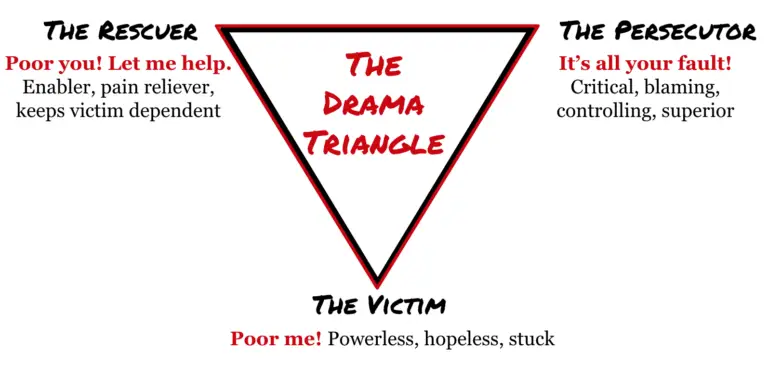List of Typical Behaviours
The following are some typical behaviours of narcissistic parents:
Narcissistic parents do not respect the physical, psychological or emotional privacy or boundaries of their children.
They may read their diaries and search their rooms.
They will not respect their children’s secrets and privacy and will often embarrass their children by disclosing private information to others.
They often shame their children for their normal bodily functions.
When their children reach their teenage years, they may become highly jealous and critical.
They will often abandon their children.
They will treat their children differently. Favoured children are known as ‘golden’ children and unfavoured children are known as ‘scapegoats.’ They will spend little money or time on ‘scapegoat’ children while lavishing gifts on the ‘golden’ children. They will continually devalue their ‘scapegoat’ children while idealising their golden children. Narcissistic parents will play their children against each other with a technique known as triangulation, this is essentially a divide and rule tactic.
When their children become adults, they may have flirtations or more with their children’s partners.
They are highly competitive and will compete with their children. This means their children may often underachieve or be ‘mediocre’ in life to deflect the intense competitiveness and jealousy of a narcissistic parent.
Children of narcissists may often be made to leave the family home at a relatively young age.
Idealising and devaluing others.
Manipulation of others in order to meet their needs. Much of what they say or do has an ulterior motive.
Apologies are rare to non-existent as they view themselves as always correct.
A strong need to control people and events around them.
Use of emotionally abusive punishments such as the silent treatment and narcissistic rage.
Blaming others for everything they feel has gone wrong.
Refusal to take personal responsibility.
Use of shame and fear to control others.
They do not value the feelings and opinions of other people.
Use of a technique known as ‘gaslighting’ to control others. Please see Gaslighting.
Idealising and Devaluing
A narcissist’s tendency to idealise and devalue is rooted in their disorder. This is a defence mechanism called splitting. This results in a pattern of unstable and intense relationships which are characterized by their alternating between extremes of idealisation and devaluation.
Splitting is the tendency to view events or people as either all bad or all good. In child development, idealisation and devaluation are normal. During childhood, individuals become capable of perceiving others as complex structures, containing both good and bad components.
If this developmental stage is interrupted (by early childhood trauma, for example) these infantile defence mechanisms may persist into adulthood. Idealisation can be seen as involving a denial of the unwanted characteristics of a person. It can be placed on a spectrum with one end being a normal form of idealisation and at the other end a pathological form. In the latter, the individual has a problem with ‘object constancy’ (the ability to maintain an emotional bond with others even where there is distance and conflict) and sees others as all good or all bad, thus bolstering idealisation and devaluation. At the other end of the continuum, idealisation is said to be a necessary precursor for feelings of mature love.
This behavioural pattern is then played out in the personality disordered person’s relationships with their children and their partners.
Manipulation
People with NPD have developed manipulative ways of behaving as it was the only way they could try to get their needs met as children and these patterns have persisted into adulthood. Much of what they do and say has an ulterior motive. They will often communicate with sarcasm or in a passive aggressive way and their partners and children will become adept at reading the subtext to everything that is said.
The threat and fear of punishments such as humiliation, narcissistic rage or the silent treatment will always be in the background as manipulative tools, whether consciously or unconsciously, in the minds of their partner and children. The narcissist may continually complain until they get their own way if they are initially refused something. The narcissist will blame their partner or children for everything including their own unhappiness. They will make their partners feel guilty by accusing them of not being supportive enough when they are not doing what the narcissist wants. These are all underhand techniques with the motive of getting their own way.
Nothing they do or say can be taken at face value. They will lie and twist reality to try to meet their needs.
Refusal to Apologise
A common behavioural trait among narcissists is the refusal to apologise. This is because of their idealisation of themselves and their devaluation of others. They lack remorse for their actions due to their sense of entitlement and they are deficient in (or are dissociated from their) empathy. Narcissists often also see themselves in the victim role and therefore refuse to take any personal responsibility for their behaviour. What this means in practice is that, for example, if they are unfaithful they will blame you for not being attentive/attractive/interesting enough and therefore it is your own fault. They may see apologising as a weakness.
Addictions
Narcissists will often have addictions. They escape into their addictions to numb the pain and to try and fill the gaping hole that has been left by their lack of a sense of self.
An addiction can help a person to manage their nervous system by creating a sense of calm or arousal with uppers (such as cocaine and methamphetamine) and downers (such as alcohol and marijuana) according to the needs of the person at the time.
Addictions are used to manage the after effects of trauma and also help the individual to deal with their emotional pain as they work as an anaesthetic. Addictions also work as a distraction as an addict can spend a majority of their time planning the use of and obtaining their substance of choice or participating in their activity of choice such as gambling or shopping.
Most commonly, narcissists have alcohol and cocaine addictions.
https://emedicine.medscape.com/article/1519417-clinical#b3
Many children of narcissists may also develop addictive behaviours.
Narcissistic Rage
Narcissists have easy access to their anger, and when they are triggered, they can go into a narcissistic rage. This can be very frightening for those around them when it happens. Being challenged or not getting their own way can send them into a rage as it challenges their sense of entitlement and their need for control and domination. They may be physically violent. They may slam doors and break objects. Their moods are unpredictable and can change rapidly.
This rage can also be related to a narcissists need for total control of their environment and may also involve self-protection and preservation with their rage, in their mind, destroying that which had threatened them. They feel justified in their level of anger and hold the recipient to blame as part of that failure to accept responsibility for themselves. There are several differences between anger and narcissistic rage. Anger is a natural reaction to a frustrating or annoying event and it occurs from a rational cause and dissipates reasonably quickly after it is expressed. The rage the narcissist feels is different in that it is either irrational or severely blown out of proportion.
Arrested Development
Whilst narcissists can often be intellectually well developed they often behave in a child-like way. It is thought their emotional development is arrested at a young age and is frozen there due to trauma. Their need for constant admiration is almost like a toddler who gets applauded for everything they do. Their defence mechanisms are primitive and they are emotionally immature. The narcissistic rages, the lying, the entitlement and the complete refusal to take personal responsibility are all examples of their emotional immaturity.
Lack of Empathy
Narcissists do not appear to have empathy for others. They are either unwilling or unable to recognise or identify with the feelings and needs of others (studies where people with NPD self-report on their feelings state that they are aware of their empathy but can switch it off).
It is possible that as a child, the narcissist learnt to shut down their empathy as a survival mechanism. The lack of empathy manifests itself as the narcissist never really being interested in the thoughts, opinions, experiences or wishes of other people. There is a lack of interest in the well-being of those close to them and they may even show irritation and boredom when their partner or children express illness or upset. They will frequently interrupt others when they are in the middle of a sentence and perhaps talk over them with a completely different subject, this is because they have no interest in what is being said and no qualms about behaving in such a disrespectful way.
The Silent Treatment
A person with NPD will often give their partner or children the silent treatment when they are displeased about something. This can be as a punishment, as a means of control or to reassert control they may feel they are losing. Any criticism of the narcissist may result in a long period of silent treatment as a way of conditioning others’ behaviour. The silent treatment can go on for days or even weeks. This is severely abusive as it is dismissive, devaluing and rejecting. It may even be engineered to create a space for the narcissist to go and ‘misbehave.’ The person with NPD can behave as if their partner or children do not exist for long periods of time and as a narcissist cannot go without admiration and attention for long periods (narcissistic supply), they are likely to be getting their needs met somewhere else.
Lying and Gaslighting
Narcissists have no qualms about lying. They lie about many things and feel no remorse about their behaviour. Their sense of entitlement means that they feel they can do whatever they want and this leads to lying to cover up the behaviours they know will be unacceptable. They use deception to achieve the goals they want. Many narcissists have addictions which may also need to be hidden. They may also lie to cover up affairs they are having. Narcissists will often challenge your version of reality with their lies which, if a person does not know about this technique, will be utterly confusing. This technique is known as gaslighting.
Gaslighting is an insidious form of manipulation and psychological control. Victims of gaslighting are deliberately and systematically fed false information that leads them to question what they know to be true, often about themselves. They may end up doubting their memory, their perception, and even their sanity. Gaslighters will use these techniques on romantic partners, family members and their children. Gaslighting involves a pattern of abusive behaviours with the intent not just to influence someone but to control them. Control and domination are the goals but for some there can also be an element of sadistic enjoyment.
Being Unfaithful
People with NPD are frequently unfaithful. In the early years of a long term relationship, they may try to cover up their affairs but in later years they may become blasé about hiding extra-marital relationships. A narcissist’s constant need for admiration and attention from others cannot be met by their main significant other and so a narcissist will continually seek that admiration from a succession of secondary partners. People with NPD can frequently be extremely cruel by having blatant affairs. They may feel they have complete control over their partner at this point or they may have decided they do not care if their partner stays or not. They are untrustworthy and are only loyal to themselves. They cannot be relied upon. The admiration they seek is known as narcissistic supply.
Seeing Themselves as the Victim
People with NPD will often portray themselves as a victim. In unhealthy methods of communicating this can force others into the position of Rescuer or Persecutor on the Karpman Triangle shown below. Most of those around the narcissist will be ‘walking on eggshells’ and they will find themselves in the role of rescuer. This is a manipulative tool for the narcissist to get their needs met or to get what they want. Being a victim also absolves them of personal responsibility for their lives.
https://exploringyourmind.com/the-karpman-drama-triangle-human-relations/

Arrogance
A trait of narcissists is that they are arrogant. This is because of their defence mechanism’s false belief that they are superior to almost all others around them. They adhere to a strict hierarchical structure. They may be abusive and dismissive to those they consider to be beneath them and obsequious to those whom they want something from or who they feel is above them in the hierarchy – perhaps their boss or someone they need to impress.
Seeking Help from Mental Health Services and Suicide
There is a common misconception that narcissists are not prone to suicide. In general, they are at substantially greater risk of suicide. For those with NPD sudden life stressors such as a job loss or financial difficulties can lead to surprise or shame suicides. The armour of a narcissist rarely cracks but it can be devastating for them when their defences break down. They are usually built up again very quickly.
People with NPD may present to a doctor or counsellor with stress and anxiety after hitting rock bottom in their careers or personal lives or because a family member has insisted they get professional help for their behaviour.
As NPD involves an arrogant disregard for others and a belief in their own superiority, they are unlikely to recognise their need for treatment and will not usually seek help of their own accord.



This Post Has 4 Comments
An extremely interesting and informative website!, I have someone close to me with NPD and so it has developed my understanding!.
Thank you. I am happy it helped.
My mother and sister both have BPD with some NPD traits. I live in the U.S. I see our current political problems as having to do with the unusually high incidence of BPD and NPD in our society. Systemic racis and grotesque income inequality – often cited as the causes of our political malaise – are only symptoms of the utter lack of empathy and the ceaseless looking outside ones self for a scapegoat that is so characteristic of Cluster B personality disorders.
I agree. Cluster B personality disorders are rife in society and the ramifications of those people being in positions of real power and influence are horrendous. They ceaselessly look outside of themselves as there is a fear of the pain of looking inwards combined with not wanting to take responsibility for their behaviour/lives. Controlling the outer world eases their inner condition.
I am hopeful that things will change as 30 years ago hardly anyone knew what NPD was but it is slowly becoming common knowledge.